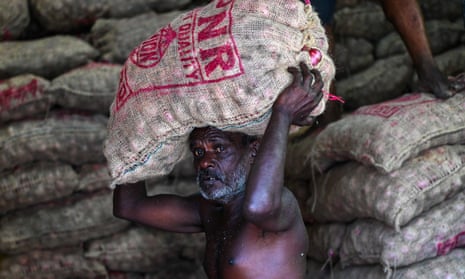The International Monetary Fund has approved Sri Lanka’s request for a $2.9bn bailout, raising hopes for an easing of its economic crisis.
The IMF’s board confirmed it had signed off on the loan, clearing the way for the release of funds and kicking off a four-year programme designed to shore up the economy.
The IMF managing director, Kristalina Georgieva, warned that Colombo must continue pursuing tax reform and greater social safety nets for the poor – and rein in the corruption that has been partly blamed for the crisis.
Sri Lanka’s president, Ranil Wickremesinghe, said in a statement on Monday: “I express my gratitude to the IMF and our international partners for their support as we look to get the economy back on track for the long term through prudent fiscal management and our ambitious reform agenda.”
Sri Lanka defaulted on its foreign debt in April 2022 as it plunged into its worst economic downturn since independence because of a major shortage of foreign currency reserves.
The Indian Ocean country of around 22 million people ran out of cash to finance even the most essential imports. Widespread protests over economic mismanagement, acute shortages of food, fuel and medicines, and runaway inflation forced then-president Gotabaya Rajapaksa to flee the country and resign in July.
Wickremesinghe replaced Rajapaksa as president and implemented tough spending cuts and tax hikes in an attempt to secure the IMF assistance. IMF staff had provisionally approved the bailout in September, but the final green light was held up until China, Sri Lanka’s biggest bilateral lender, agreed to restructure its loans to Colombo.
Beijing had said this year it was offering a two-year moratorium on its loans to Sri Lanka, but the concession fell short of IMF expectations for the sustainability of the island’s debt. Wickremesinghe said after China agreed to restructure its loans that he expected the first tranche of the IMF package would be made available within the month.
Colombo will also be banking on the IMF deal to unfreeze billions of dollars in foreign aid for projects suspended since Sri Lanka defaulted on its loans last year.
